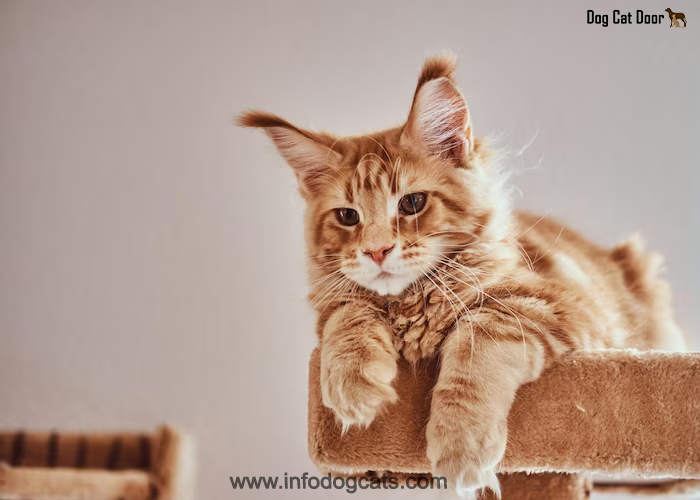Discover everything about Maine Coon cats – from their majestic size to loving personality. Learn expert tips on care, characteristics, and why these gentle giants make perfect pets. Complete 2024 guide. The Maine Coon cat stands as one of the most magnificent and beloved cat breeds in the world.
These gentle giants have captured the hearts of cat enthusiasts worldwide with their impressive size, striking appearance, and wonderfully affectionate personalities. In this comprehensive guide, we’ll explore everything you need to know about Maine Coon cats, from their mysterious origins to their unique care requirements.
The Fascinating History of Maine Coon Cats
The Maine Coon’s history is steeped in folklore and mystery, dating back to the early days of American settlement. Native to the state of Maine, these remarkable cats evolved naturally to survive the harsh New England winters. Local legends suggest they resulted from crossbreeding between domestic cats and raccoons – a biological impossibility that nonetheless inspired their name. The true origin likely involves long-haired cats brought by sailors to North America, who then adapted to the cold climate.
Distinctive Physical Characteristics
Maine Coons are immediately recognizable thanks to their distinctive features. Their most notable characteristic is their impressive size – adult males can weigh between 13-18 pounds, while females typically range from 8-12 pounds. Their robust bone structure, muscular build, and long, flowing coat create an impressive silhouette that sets them apart from other domestic cats.
The Magnificent Maine Coon Coat
The Maine Coon’s coat is one of its most striking features. These cats boast a thick, water-resistant double coat that comes in a wide variety of colors and patterns. Their fur is longer around the ruff, stomach, and britches, creating a shaggy but elegant appearance. The coat’s unique texture and length served as natural protection against the harsh New England winters, making it both beautiful and functional.
Facial Features and Expressions
Maine Coons possess distinctive facial features that contribute to their unique charm. High cheekbones, large, expressive eyes, and well-tufted ears create an alert, intelligent expression. Their square muzzle and strong chin give them a regal appearance, while their often-present “lynx tips” (tufts of fur extending from their ears) add to their wild, majestic look.
Personality Traits and Temperament
Known as the “gentle giants” of the cat world, Maine Coons have earned a reputation for their friendly and sociable nature. These cats typically display dog-like loyalty, following their owners from room to room and greeting visitors with curious interest rather than fear. Their intelligence and playful nature make them excellent family companions.
Social Behavior and Family Integration
Maine Coons are remarkably social cats that form strong bonds with their human families. They’re known for their patience with children and ability to get along well with other pets, including dogs. Despite their large size, they’re gentle and careful in their interactions, making them ideal for households with multiple pets or young children.
Care Requirements and Health Considerations
Maintaining a Maine Coon’s health requires dedicated attention to several key areas. Their long coat needs regular grooming to prevent matting and maintain its lustrous appearance. Daily brushing is recommended, with special attention to the dense undercoat during shedding seasons.
Diet and Nutrition Needs
Maine Coons require a balanced, high-quality diet to maintain their large frame and energy levels. Their diet should be rich in protein and include adequate amounts of fatty acids for coat health. Due to their size, they may need more food than average cats, but portion control is essential to prevent obesity.

Exercise and Environmental Enrichment
Despite their large size, Maine Coons are active and playful cats that need regular exercise. They enjoy climbing and benefit from cat trees and perches that can support their weight. Interactive toys and puzzle feeders can help keep them mentally stimulated and physically active.
Common Health Issues
While generally healthy, Maine Coons are predisposed to certain genetic health conditions. Hip dysplasia, hypertrophic cardiomyopathy, and spinal muscular atrophy are among the conditions that can affect the breed. Regular veterinary check-ups and genetic testing can help identify and manage these issues early.
Breeding and Selection
Responsible breeding practices are crucial for maintaining the health and characteristics of the Maine Coon breed. Reputable breeders conduct genetic testing and health screenings to produce healthy kittens while preserving the breed’s distinctive traits.
Maine Coon cats represent a perfect blend of majesty and companionship. Their impressive size, gentle temperament, and loving nature make them exceptional pets for those prepared to meet their care requirements. Whether you’re considering adding a Maine Coon to your family or simply admiring these magnificent creatures, understanding their unique characteristics and needs is essential for ensuring they live happy, healthy lives.
Frequently Asked Questions
- Q: How long do Maine Coon cats typically live?
- A: Maine Coon cats generally live between 12-15 years, though some can live longer with proper care and good genetics.
- Q: Are Maine Coon cats high-maintenance pets?
- A: While they require regular grooming and attention to their health needs, Maine Coons are generally not considered high-maintenance compared to other long-haired breeds.
- Q: Do Maine Coon cats need special food?
- A: Maine Coons benefit from high-quality cat food formulated for large breeds, but they don’t necessarily require special food unless they have specific health concerns.
- Q: Can Maine Coon cats be kept in apartments?
- A: Yes, Maine Coons can adapt well to apartment living as long as they have adequate space for exercise and climbing opportunities.
- Q: At what age do Maine Coon cats reach full size?
- A: Maine Coons are slow-growing cats that typically don’t reach their full size until they’re 3-5 years old.
